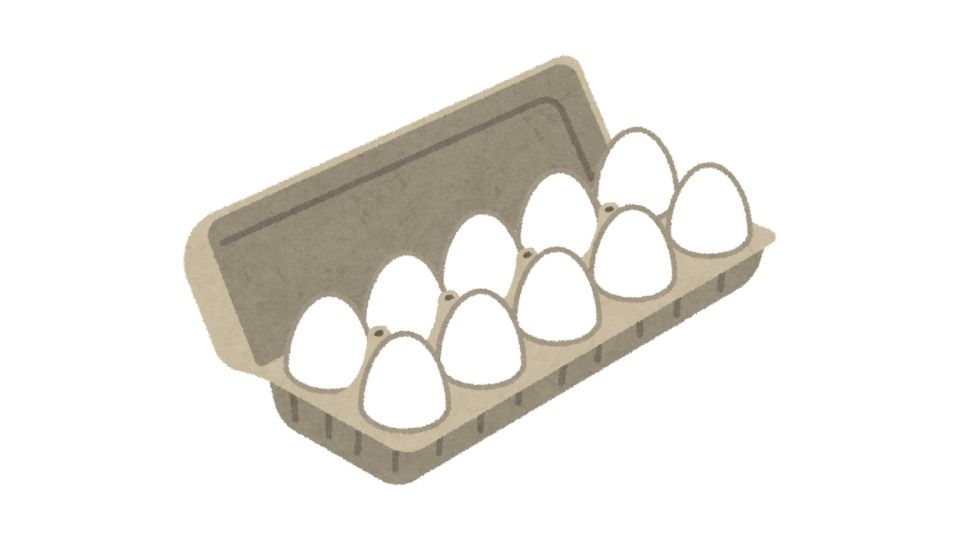Ever wonder how much protein you’re actually getting from those eggs in your fridge?
Let’s crack this open (pun intended). When you’re tracking your nutrition or just trying to hit your daily protein goals, knowing exactly how much protein is in a pound of eggs can be super helpful.
Spoiler alert: A pound of eggs contains approximately 100-113 grams of protein, depending on the size of the eggs and whether you’re counting shell weight.
But there’s more to the story (isn’t there always?). Let’s dive deeper into the incredible, edible egg.
The Protein Powerhouse in Your Fridge
Eggs are one of nature’s most perfect protein packages. Not only do they contain high-quality complete protein (meaning all nine essential amino acids your body can’t make on its own), but they’re also affordable, versatile, and delicious.
Breaking Down Egg Protein by Size

Not all eggs are created equal! The protein content varies based on the size:
- Small egg (~38g): ~4.8 grams of protein
- Medium egg (~44g): ~5.5 grams of protein
- Large egg (~50g): ~6.3 grams of protein
- Extra large egg (~56g): ~7 grams of protein
- Jumbo egg (~63g): ~7.9 grams of protein
This means a large egg gives you about 6.3 grams of protein for only about 72 calories. Pretty efficient, right?
How Much Protein in a Pound of Eggs?
Here’s where it gets interesting (and a bit confusing).
A pound equals 453.6 grams. But when we calculate protein in a pound of eggs, we need to consider:
- Are we counting shell weight? (You don’t eat the shell… usually)
- What size eggs are we talking about?
If we’re talking about the edible part (no shells), a pound of eggs contains approximately 100-113 grams of protein.
This calculation makes more sense when you think about it this way:
- A large egg without shell weighs about 50 grams
- There are roughly 9 large eggs in a pound (453.6 ÷ 50 = ~9)
- 9 eggs × 6.3g protein = 56.7g protein per pound with shells
- Adjusting for edible portion only (removing shell weight which is about 10-12% of total egg weight), we get closer to 100-113g protein per pound
The Shell Game: Why The Numbers Get Confusing

The confusion comes from whether we’re counting:
- Pounds of whole eggs (with shells)
- Pounds of edible egg (without shells)
- Pounds of egg whites only
Eggshells make up about 9-12% of an egg’s weight and contain no protein. So a pound of eggs with shells has less edible protein than a pound of shelled eggs.
Some nutrition sources cite around 55-60 grams of protein per pound when including shell weight, while others cite 100-113 grams when measuring only the edible portion.
Egg Nutrition Beyond Just Protein
Eggs aren’t just protein machines – they’re nutritional powerhouses offering:
- Vitamins: B12, riboflavin, vitamin D
- Minerals: Selenium, phosphorus, iron
- Choline: Essential for brain health (one egg provides 23-31% of your daily needs)
- Antioxidants: Lutein and zeaxanthin for eye health
- Healthy fats: Including omega-3s (especially in pasture-raised eggs)
And despite old concerns, recent research shows that dietary cholesterol in eggs doesn’t significantly impact blood cholesterol levels for most people.
Making the Most of Eggs in Your Diet

When it comes to protein sources, eggs are hard to beat (though not literally—please beat your eggs for scrambles).
How Eggs Compare to Other Protein Sources
While eggs are excellent protein sources, here’s how they stack up against the competition:
- Chicken breast: ~31g protein per 100g
- Salmon: ~25g protein per 100g
- Greek yogurt: ~10g protein per 100g
- Eggs: ~13g protein per 100g (edible portion)
The difference? Eggs are complete proteins with excellent digestibility and bioavailability. Your body can use nearly all the protein in eggs, which isn’t always true for plant proteins.
Practical Tips for Getting Your Egg Protein
- Boil a batch: Hard-boiled eggs make perfect grab-and-go protein snacks
- Track the edible weight: When counting macros, weigh eggs without shells for accuracy
- Don’t toss the yolks: While whites contain most of the protein, yolks have valuable nutrients
- Pair with complementary foods: Eggs + whole grain toast = complete meal with fiber and protein
The Final Verdict on Egg Protein

To summarize what we’ve cracked open here:
- A pound of eggs (edible portion, no shells) contains approximately 100-113 grams of protein
- A pound of whole eggs (with shells) contains approximately 55-60 grams of protein
- A single large egg provides about 6.3 grams of high-quality protein
Eggs remain one of the most nutritious and affordable protein sources available, making them a smart choice for anyone looking to increase their protein intake without breaking the bank.
Whether you’re an athlete, fitness enthusiast, or just someone trying to eat better, eggs deserve a place in your protein rotation. They’re nature’s perfect little protein packages – no wonder they’ve been a dietary staple for thousands of years!
So next time you’re making an omelet or prepping your meal plan, you can be confident in exactly how much protein you’re getting from those eggs.
And remember – quality protein sources like eggs help build muscle, support immune function, and keep you feeling fuller longer.
Not bad for something that comes in its own biodegradable packaging!




Leave a Reply